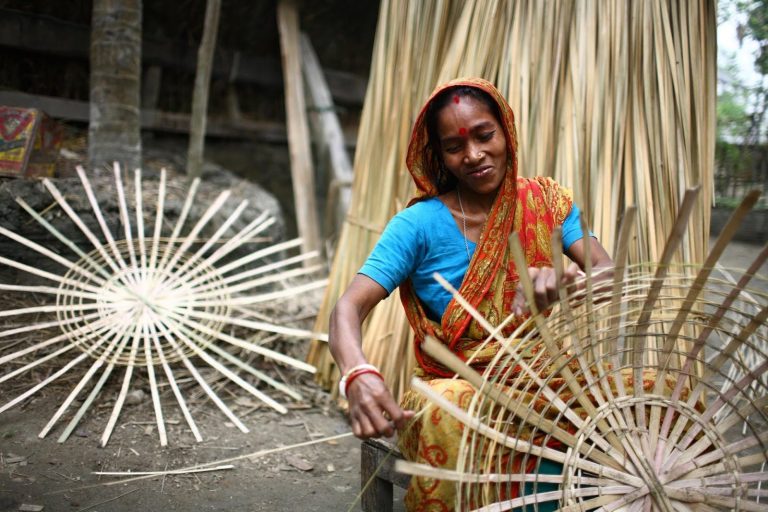In this Article
Using bamboo as a move towards eco-friendly resource consumption gives a chance to combat climate change and create jobs for communities.

Source: IFAD
Bamboo, an effective carbon sink, is considered as one of the solutions to climate change. It grows abundantly in a wide range of tropical, subtropical, and temperate regions. Recognized as a possible tool for socio-economic development, this led to various initiatives to build sustainable livelihoods with several environmental benefits through the growth of the bamboo sector. Governments throughout the world, as well as international organizations such as the International Fund for Agricultural Development (IFAD) and the International Bamboo and Rattan Organization (INBAR) have put these initiatives into action. These interventions employ various strategies including training programs, policy recommendations, distribution of raw materials, and financial support for communities.
The socio-economic, environmental and ecological components are among the desired benefits of the bamboo industry. Focusing on the socio-economic side, bamboo is a stable and reliable source of income because it can be harvested repeatedly on a shorter rotation cycle compared to other tree plantations. It self-propagates, promotes regrowth, continuously captures carbon, eventually providing farmers with a sustainable source of revenue. Also, men and women who handle certain household jobs like cooking, cleaning, taking care of children or adults may also venture on supplementary income from processing industries such as handweaving and manufacturing of household products. Work which requires an art or handcraft like the manufacturing of bamboo charcoal or incense sticks can be carried out at home.
References:
Binfield, L., Britton, T.L., Dai, C. et al. Evidence on the social, economic, and environmental impact of interventions that facilitate bamboo industry development for sustainable livelihoods: a systematic map protocol. Environ Evid 11, 33 (2022). https://doi.org/10.1186/s13750-022-00286-8




